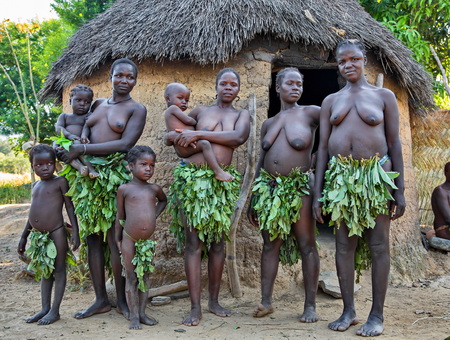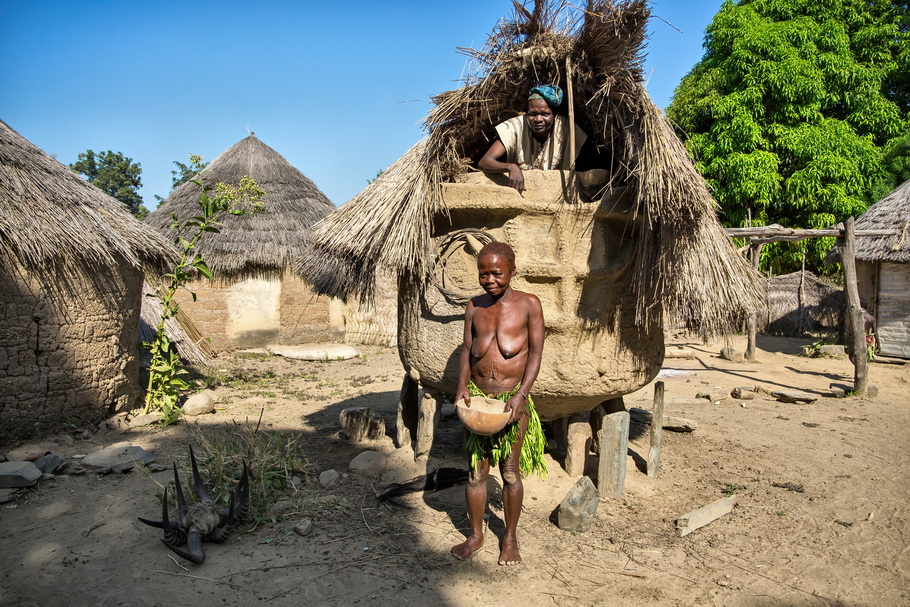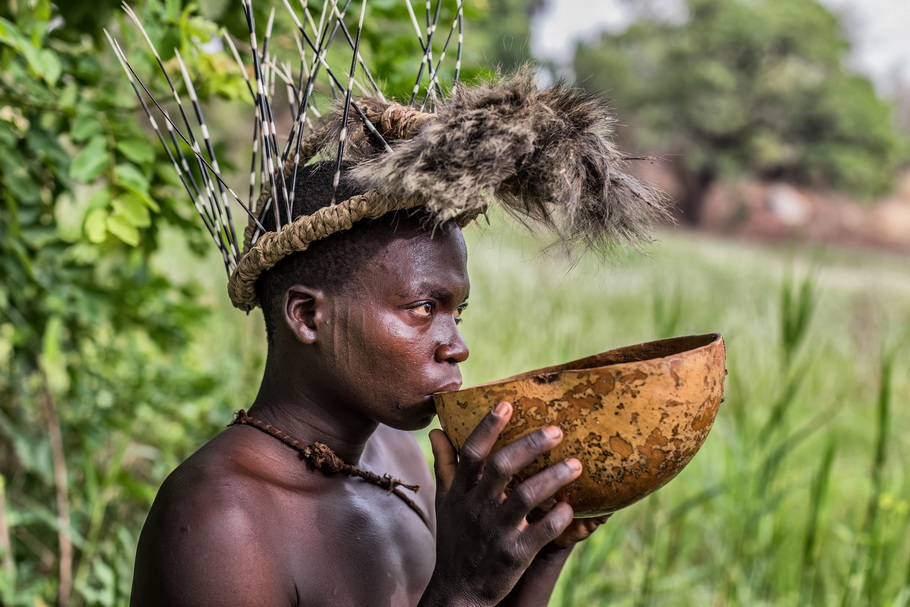

The Dupa tribe inhabits the remote Vokre Mountains in northern Cameroon. Its population ranges between 3,000 and 7,000 individuals. The fertile Vokre Mountains allow them to live on subsistence farming which they combine with some herding, hunting and gathering.

The Dupa build circular clay houses that they decorate with reliefs. Each village is made up of 4-5 houses with a group of barns where they keep the cereals they collect after each harvest.
In terms of aesthetics, the dupas continue to make cloth from native cotton to cover their sex. The men wear indigo-dyed caps, and older men can still be seen wearing the penis case (similar to that worn by Dani in West Papua, Indonesia). It is one of the last towns in Africa that preserves this custom. Some women cover their private parts with acacia leaves like their neighbors: the Koma from the Alantika Mountains.
The traditional Dupa dances and the buffoons stand out, dressed in fabrics and antelope horns, who liven up the festivities. They are usually celebrated during the millet harvest (dry season from November to March).
French colonial policy between 1930 and 1950 was to promote the descent of the hill tribes that inhabited the foothills of the ranges that separated British Nigeria from French Cameroon. In 20 years, most of the mountain tribes descended to the plains and their culture and economy were irremediably transformed.
The Dupa, unlike other mountain tribes, resisted and continue to resist to the present on the heights. They consider life in the valleys "less free" and harder. The climate in the valleys is worse and despite having access to schools and hospitals (inheritance of European colonial power), these are not seen as advantageous for them and they prefer to survive in the mountains.
The challenges of the Dupa in the middle of S-XXI remain the same as centuries ago. The incursion of other cultures in its territory; the spread of Islam and Christian missionaries who want to transform their culture and assimilate them to new creeds and ideologies. Many young Dupa are attending religious schools in Poli (the closest town to the Vokre mountains) and many no longer return to the mountains.





Sources: